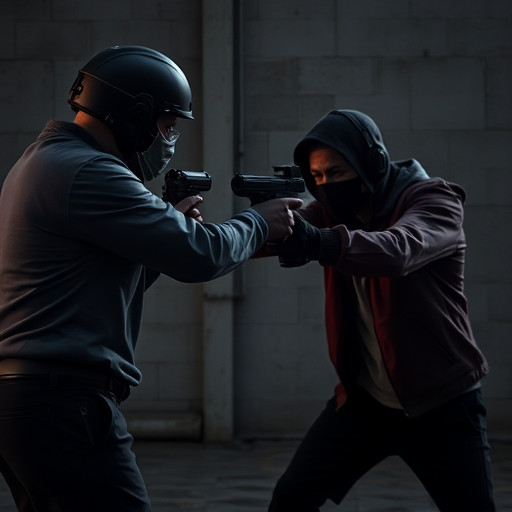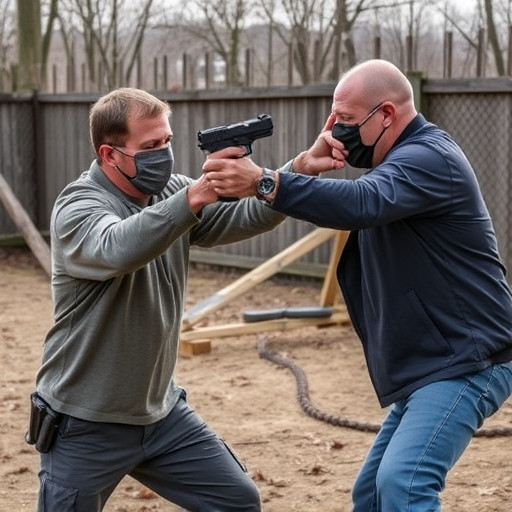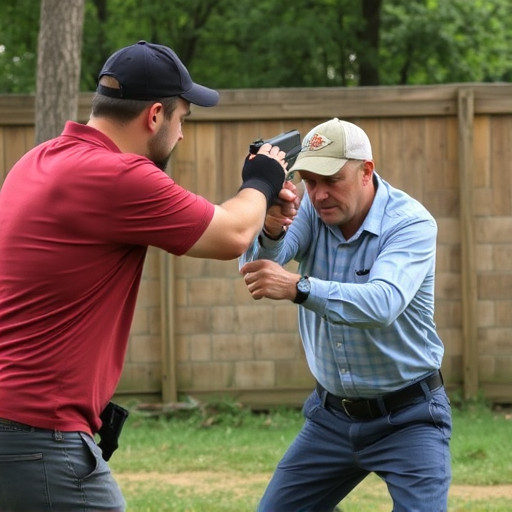Stun Gun vs Pepper Spray: Navigating Regulations for Effective Self-Defense
Understanding state laws is crucial when choosing between stun guns and pepper spray for self-defens…….
Understanding state laws is crucial when choosing between stun guns and pepper spray for self-defense, as regulations vary regarding concealed carry. Stun guns deliver electric shocks for close combat, while pepper spray causes blindness and respiratory distress from a distance. Effectiveness depends on the situation—stun guns against larger assailants, pepper spray for masked enemies. Legal considerations, including carry permissions and restrictions in specific locations, must be checked alongside ease of use and range. Informed decisions ensure safety and legality when selecting non-lethal self-defense tools.
In today’s world, personal safety is a top priority. One popular self-defense tool gaining traction is the stun gun, but understanding its regulations and effectiveness is crucial. This comprehensive guide explores concealed carry stun gun laws, delving into the debate between stun guns and pepper spray, and offering key considerations for making an informed choice. We navigate the legalities involved, ensuring you’re aware of the do’s and don’ts before concealing a stun gun. Discover insights on stun gun vs. pepper spray effectiveness to empower yourself with the best defense strategy.
- Understanding Concealed Carry Laws: A Comprehensive Overview
- Stun Gun vs Pepper Spray: Unraveling the Effectiveness Debate
- Key Considerations for Choosing the Right Self-Defense Tool
- Navigating Legalities: What You Need to Know Before Concealing a Stun Gun
Understanding Concealed Carry Laws: A Comprehensive Overview

Understanding concealed carry regulations is crucial, especially when considering self-defense options like stun guns versus pepper spray. Each state has its own set of rules governing the carrying of stun devices, and these laws vary widely in terms of age restrictions, permit requirements, and allowed locations. For instance, some states allow open or concealed carry without a permit while others mandate permits for both types. Additionally, certain areas may restrict where stun guns can be carried, such as schools, government buildings, or places of worship.
When comparing stun guns to pepper spray, it’s essential to consider their effectiveness and use cases. Stun guns are designed to temporarily incapacitate an attacker by delivering a strong electric shock, rendering them defenseless for a short period. In contrast, pepper spray causes temporary blindness, coughing, and difficulty breathing in the target, allowing the user to escape. The effectiveness of each depends on factors like the user’s training, the attacker’s resistance, and the specific product’s potency. Understanding these nuances is vital when choosing between a stun gun or pepper spray for personal protection.
Stun Gun vs Pepper Spray: Unraveling the Effectiveness Debate

When it comes to personal defense, stun guns and pepper spray are two commonly discussed options. However, understanding their distinct qualities and effectiveness is crucial for informed decision-making. Stun guns emit a powerful electric shock designed to incapacitate an assailant momentarily, while pepper spray irritates the eyes, nose, and throat, causing the target to temporarily lose visibility.
In terms of stun gun vs pepper spray effectiveness, studies suggest that both have varying levels of success depending on the situation. Stun guns are generally considered more reliable in close-quarters combat, as they don’t require direct contact and can be effective against larger or more aggressive attackers. Conversely, pepper spray might prove more useful for individuals with distance advantages or those dealing with assailants wearing protective gear, as it can disrupt vision and breathing from a safer distance.
Key Considerations for Choosing the Right Self-Defense Tool

When choosing a self-defense tool, understanding the differences in stun gun vs pepper spray effectiveness is crucial. Stun guns utilize electric current to temporarily incapacitate an attacker, while pepper spray irritates the eyes and respiratory system. Each has unique advantages; for example, stun guns can be more effective against larger opponents or those wearing protective gear, whereas pepper spray may prove more reliable in close-quarters combat or against masked assailants.
Consideration should also be given to factors like ease of use, range, and legal restrictions. Stun guns often require a trigger pull, which could be problematic if you’re startled by an attack. Pepper spray, on the other hand, is typically activated by a simple flip of the canister, making it quicker to deploy in unexpected situations. Familiarize yourself with local concealed carry regulations regarding these tools to ensure you remain within legal boundaries while prioritizing your safety.
Navigating Legalities: What You Need to Know Before Concealing a Stun Gun

Navigating Legalities: Understanding Concealed Carry Regulations for Stun Guns
Before considering concealed carry, it’s crucial to understand the legal landscape surrounding stun guns. Unlike firearms, stun devices have varying regulations and restrictions based on location. What may be legal in one state could differ significantly from another, with some areas permitting stun guns without a permit while others demand strict adherence to licensing requirements. For instance, comparing stun gun effectiveness against pepper spray is essential; while both serve as non-lethal self-defense tools, their use cases and impact levels vary. Pepper spray is designed to temporarily blind and disable through irritation, whereas stun guns aim to incapacitate with electric shocks.
State laws often differentiate between stun guns, tasers (a type of stun gun), and pepper spray, each having unique regulations. Some states allow open carry or permit concealed carry with specific conditions, such as registration or training certifications. It’s imperative to check local, state, and federal guidelines to ensure compliance. Online resources and legal consultations can provide valuable insights into the specific rules, helping responsible citizens make informed decisions regarding self-defense options like stun guns versus pepper spray.
When considering concealed carry regulations, especially regarding stun guns versus pepper spray, it’s crucial to understand both the legal framework and the effectiveness of each tool. This article has provided a comprehensive overview of these aspects, highlighting key considerations for making an informed decision. Remember that navigating the legalities is essential to ensure compliance and safety. In terms of Stun Gun Vs Pepper Spray Effectiveness, understanding their unique properties can help individuals choose the best self-defense option for their specific needs and local regulations.


